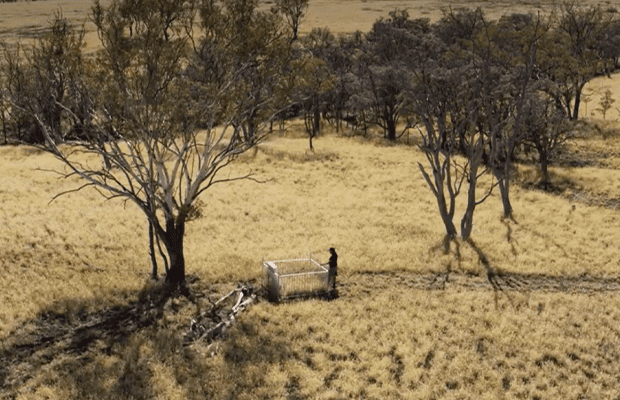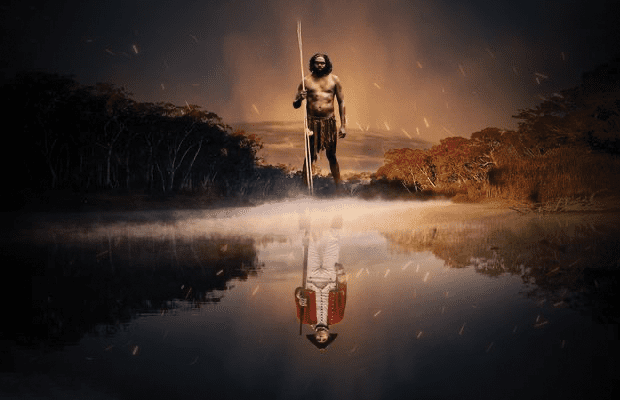CW: Honi advises Aboriginal and Torres Strait Islander readers that this article may contain images, perspectives and names of deceased persons. Readers are warned that this article mentions colonial violence towards Aboriginal and Torres Strait Islander peoples.
The Australian Wars is a new three-part documentary series on SBS on Demand. Directed and produced by Arrernte and Kalkadoon filmmaker Rachel Perkins, the series traces the story of settler-colonial violence from the landing of the First Fleet in 1788 until the 1920s. Perkins sets out to understand why the war was never declared, why the British didn’t follow their own laws, and the tactics and strategies Aboriginal people employed defending their land.
The ‘frontier wars’ were the conflicts between Europeans and Aboriginal people during and immediately after colonisation, generally agreed to have spanned a period from 1788 to around 1934. The wars were fought over access to land which the British sought to exclusively occupy in the absence of a legal agreement, treaty, or settlement with the Aboriginal peoples of mainland Australia.
Perkins’ new series explains in detail — aided by the deployment of re-enactments, artefacts, historical archives and colonial records, biographical evidence and oral histories, and masterful use of place and space — the methods of Aboriginal resistance to settlement. Perkins interviews historians and anthropologists, who share stories of guerilla warfare between Pemulwuy’s army and British colonial troops, massacres of Aboriginal families and settlers on the frontier, and brutal lateral violence by the state-sanctioned ‘native police’.
Aboriginal people are still resisting today, in the courts.
“Today, the survivors [of the frontier wars] have a different fight on their hands. It’s still over their land and still with the Queensland government, but now it’s in the courts. In a bitter irony, the government uses the violent destruction of their clans as evidence that their connection to their country has been broken,” Perkins explains.

The Australian Wars is a crucial milestone in the process of truth-telling. Perkins and her team deliver a public reckoning with the means by which the British Empire, and subsequent independent colonial administrations, perpetrated cultural — and, in some cases, actual — genocide against Aboriginal people, undertaking a massive land grab in the process.
Like many other young Aboriginal people, I was born into the twilight years of the ‘Great Australian Silence’, a period of time in which the dominant narrative of Australian settler-colonialism was sunny tales of overcoming great odds, sustained by hard toil and indomitable will. Educators, historians, politicians, and public servants viewed the history of this continent through rose-tinted glasses; Aboriginal acts of resistance, refusal and warfare were somehow miraculously omitted.
Only in the past several decades has reconciliatory efforts allowed for the emergence of a more truthful account of the past. On account of new and diverse perspectives, a changing academic landscape and a greater commitment to truth-telling, the Australian public are slowly navigating the sickening realities of the frontier wars.
A key action spurred by the series is greater recognition and commemoration of the victims and casualties of the frontier wars by the Australian War Memorial.
Essayist and author Paul Daley claims: “The ANZAC cloak has shielded the Australian War Memorial from criticism. Its recognition of frontier violence is long overdue.”
The War Memorial’s recent promise to present a “much broader, deeper” depiction of the frontier wars is a drastic and welcome shift from the views held by its traditionally conservative governing body. The news that Brendan Nelson — former federal opposition leader and memorial director — is resigning his role within the institution as council chair marks the end of his long and influential association with the Australian War Memorial.
As chair, he argued that “[Australian frontier conflict] did not equate to war”, it was “the agreed job of the National Museum of Australia [not the War Memorial] to depict colonial Black-white conflict”, and that “Australian-raised military units were not involved in such fighting”.
The “job” of truthfully depicting the realities of colonial violence on the frontier now falls to Blak filmmakers and historians. History — particularly, and upsettingly, recent history — tells us that non-Aboriginal people, groups, and institutions cannot be trusted to tell our stories for us. In The Australian Wars, Perkins reaffirms Aboriginal peoples as the original storytellers and competently challenges the views and perspectives of white Australia.
All episodes of The Australian Wars are available for streaming on SBS on Demand now. For wider viewing, The Australian Wars: Evidence from Queensland and Land Wars, panel discussions with leading Aboriginal historians, anthropologists, activists and filmmakers, are also available for streaming.





